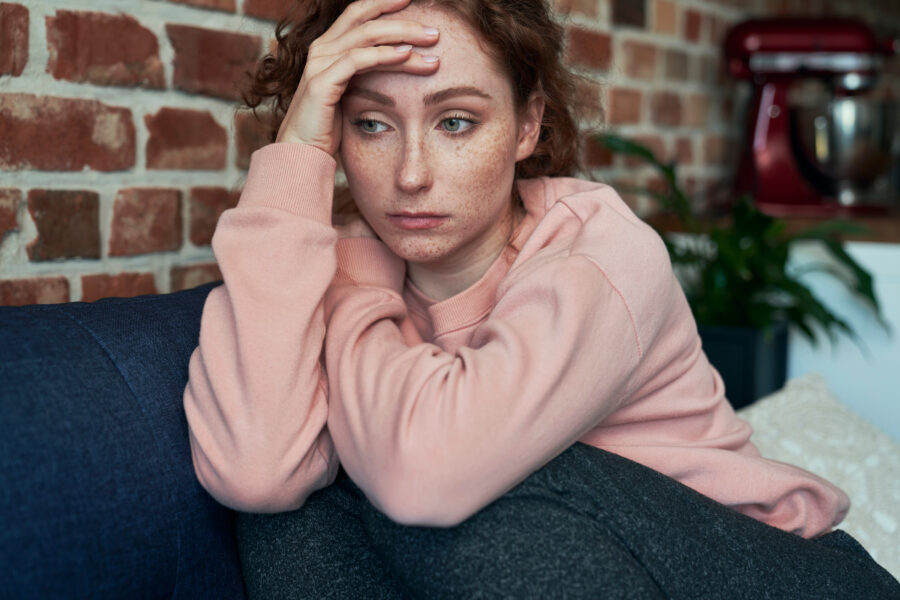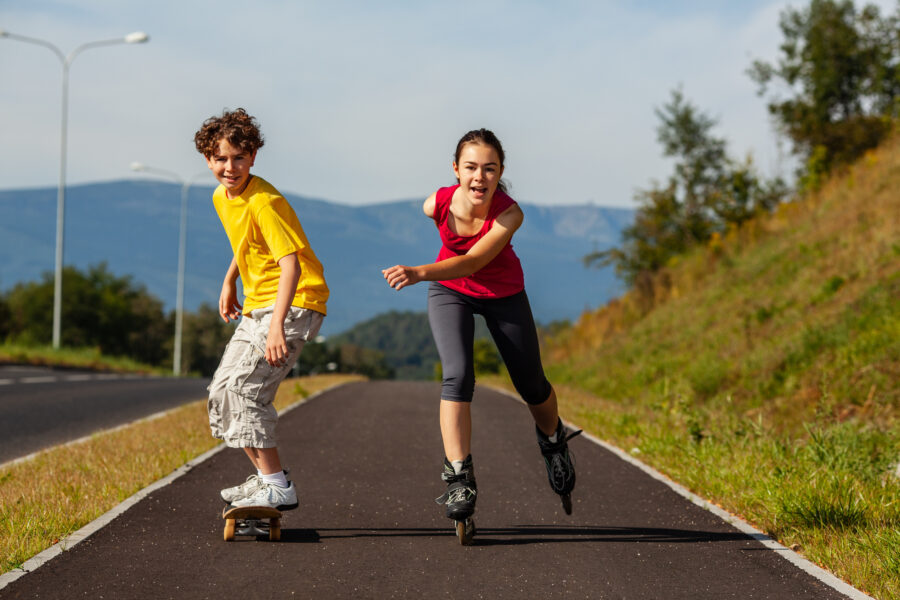Seven million unemployed, able-bodied, American men between the ages of 25 and 54 are not looking for work. What are they doing instead? According to economist Nick Eberstadt, in his 2022 book, Men Without Work: Post-Pandemic Edition, (a follow-up to his 2016 book Men Without Work), ninety percent of these men stated, in self-reported surveys, that they are spending over 40 hours per week (the equivalent of a full-time job), on “screens.”(1)
Screen time can mean anything from looking for work to watching TV, playing video games, or engaging with social media. When considering the statistics surrounding social media use, it would not be surprising to learn that many “men without work” are spending a good deal of time on social media -and they aren’t alone.
Social Media and Mental Health
Looking at social media and mental health statistics from 2017, 69% of adults and 81% of teens in the U.S. use social media. (2) Experts believe social media puts many people at an increased risk of feeling anxious, depressed, or ill. (3) What is meant by “ill?” Ill might be described as the feeling of anticipation that users feel when the possibility of a “like” or a “share” of their post is desired but isn’t received. These light forms of perceived rejection, over time, can create a growing sense of disappointment or feelings of inadequacy and stress.
Having one’s posts seen, liked, and/or shared provides a mild surge of dopamine. Dopamine is one of the body’s feel-good neurotransmitters. When the dopamine “fix” is felt repeatedly, it can become somewhat of an addiction. Causing users to feel down when the brain hasn’t received the anticipated validation. Like any technology, social media can be a force for good, for…not-so-good, or neutral. Receiving one hundred messages from Facebook friends on your birthday might make you feel warm and fuzzy for a week. Finding that perfect healthy granola recipe made with gluten-free oats on Pinterest is unquestionably a good thing. But the negative effects of social media on mental health are becoming well-known, particularly for young people.
Science and Social Media

According to a 2014 review study published in the journal, Cyberpsychology, Behavior, and Social Networking, several studies have found that prolonged use of social media may be associated with signs and symptoms of depression, with some experts reporting that certain types of social media interaction are associated with low self-esteem, especially in children and adolescents. (4)
Discovering how social media affects mental health has become an area of genuine academic study. But the relationship between social media use and mental problems is somewhat controversial.
Researching this issue can be challenging because the majority of studies conducted on social networking and mental health have been conducted using standard psychiatric questionnaires. Such assessment scales are the traditional method used in psychological research -with several different assessment scales for the same psychiatric symptom commonly used.
Designing a research study is complicated, and it can be difficult to determine which scale would be most appropriate for the population being studied, especially when different age groups such as high school students, college students, etc. are being studied and the area of research is relatively new.
A Pew Research survey from 2018 reported that ninety-five percent of teens now have smartphones, and forty-five percent of those say they are online “almost constantly.” (5) (We’ve all seen the commercials with two teens texting from opposite ends of the same couch.) YouTube, Instagram, and Snapchat were reported as the most popular online platforms with teens. Forty-five percent of those teens reported that their constant attention to social media was neither a positive or a negative force in their lives. Nevertheless, the influence of social media on teenagers has parents worried.
The Good and The Not-So-Good
Social media allows an individual to create an online identity, then communicate with others and build a social network when needed. It has the ability to provide a real connection to peers via a large network of friends. This can be particularly helpful to those who may be dealing with feelings of isolation and can even help teens avoid depression. That’s the good news.
Teens also use social media for entertainment with apps like Snapchat, for example, which offer a vehicle for self-expression. Across all age groups, social media apps serve as a source of information about events of interest and provide users with the ability to connect with others in faraway places.
Other benefits of social media include learning opportunities and apps that reinforce positive health habits such as pedometers that count daily steps and food trackers that monitor macronutrients -which can be compared with peers for purposes of support or competition.
The Negative Effects of Social Media
However, there are negative effects of social media on society. Lack of human interaction is a concern with any age group. For teens, social media can be distracting during school hours and can disrupt sleep. There have also been many reports of bullying, rumor spreading, and peer pressure -all centered around what’s happening on social media.
One can create an (imaginary) life of seemingly non-stop fun and excitement. A life that illustrates edited photos with their “flawless” looking “friends,” in exotic locations, wearing perfect outfits. Individuals of all ages can become drawn into the fantastically “exciting lives” of peers and feel they can’t measure up. They may feel that they lead uninteresting lives by comparison, failing to understand that such perfect lives are mostly a façade.
What’s most problematic for teens could be related to the total time spent on social media. A 2019 study published in JAMA questioned 6,595 American teens aged 12-15 using self-assessments and found the more time per day spent on social media, the more likely they were to internalize problems, such as depression and anxiety and experience external problems like bullying and problems with attention. (6) Three or more hours per day spent on social media was deemed problematic by researchers. (7)
How to Stop Social Media Addiction
An effective way to curb moderate feelings of stress and anxiety attributable to social media (or to other factors), is to support a balanced cortisol response in the body.
Cortisol is the body’s primary stress hormone. Adding a high-quality adrenal health support supplement can be helpful. MaxLiving’s Adrenal Revive provides all-around support for the adrenals and helps with the body’s adaptation to stress.
For parents concerned with the influence of social media on their children, below are some strategies that can curb usage and perhaps its influence:
- Limit screen time – communicate the importance of not letting social media interfere with daily activities such as school work, sporting activities, dinner time, and sleep. Avoid cellphone usage one hour before bedtime for all family members.
- Periodically monitor accounts –review your child’s social media accounts regularly and make it clear that you’ll be doing so. (Following through is important.)
- Set guidelines – convey the damage that gossiping, spreading rumors, or bullying can do to others. Make sure young people understand what is not appropriate to share on social media.
- Encourage in-person time with friends – this can be a game-changer for kids who struggle with anxiety.
- Discuss social media at home – If you sense social media is negatively affecting your child, seek help from a qualified mental health professional.
Acting on these strategies for mental health while supporting the body with MaxLiving’s Adrenal Revive, can provide considerable peace of mind.
About the Author

Jini Cicero is a Los Angeles-based Strength and Conditioning Specialist with a bachelor’s degree in Kinesiology. With over 20 years of experience as a health, fitness, and nutraceutical professional, Jini is passionate about advancing natural medicine and optimal health. Whether she’s working with Hollywood celebrities or cancer patients, Jini uniquely combines exercise science, sports nutrition, and corrective exercise. As a speaker, presenter, and writer, her work has been featured in numerous publications, such as Shape, MindBodyGreen, and The L.A. Daily News.
References:
- https://www.aei.org/articles/what-do-prime-age-nilf-men-do-all-day/
- https://www.mcleanhospital.org/essential/it-or-not-social-medias-affecting-your-mental-health
- https://www.mcleanhospital.org/essential/it-or-not-social-medias-affecting-your-mental-health
- https://www.ncbi.nlm.nih.gov/pmc/articles/PMC4183915/
- https://www.pewresearch.org/internet/2018/05/31/teens-social-media-technology-2018/
- https://jamanetwork.com/journals/jamapsychiatry/fullarticle/2749480
- https://jamanetwork.com/journals/jamapsychiatry/fullarticle/2749480






